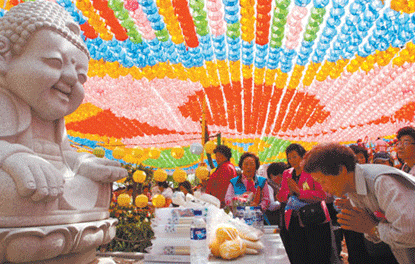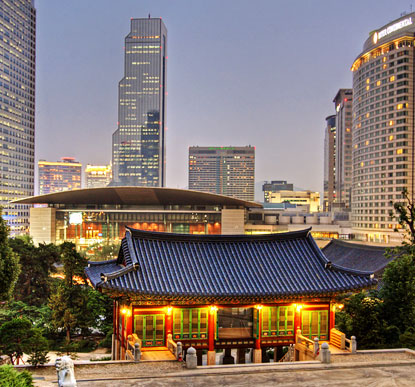
Korean Buddhism is distinguished from other forms of Buddhism by its attempt to resolve what it sees as inconsistencies in Mahayana Buddhism.
Early Korean monks believed that the traditions they received from foreign countries were internally inconsistent. To address this, they developed a new holistic approach to Buddhism.
This approach is characteristic of virtually all major Korean thinkers, and has resulted in a distinct variation of Buddhism, which is called Tongbulgyo (“interpenetrated Buddhism”) by Korean scholars. Korean Buddhist thinkers refined their predecessors’ ideas into a distinct form.

As it now stands, Korean Buddhism consists mostly of the Seon lineage. Seon has a strong relationship with other Mahayana traditions that bear the imprint of Chinese Ch’an teachings, as well as the closely related Japanese Zen.
Other sects, such as the Taego, the modern revival of the Cheontae lineage, the “Jingak” order (a modern esoteric sect), and the newly formed Won, have also attracted sizable followings.




